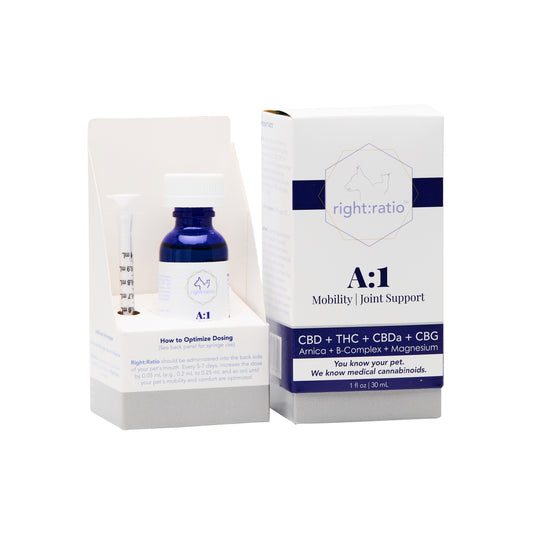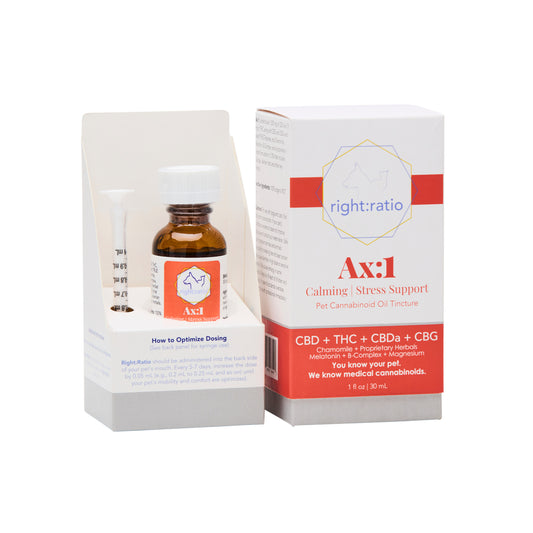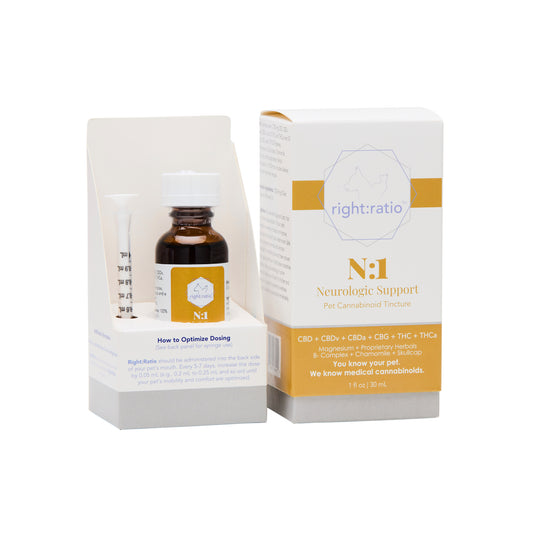
How Magnesium Supports Mobility in Cats and Dogs
Share
Magnesium is a key nutrient for helping both dogs and cats with mobility support from assisting in bone growth and development, to relaxing their muscles, and even transmitting the signals that connect how a body part should move from the brain to the body. In fact this study from the NIH compares its impact on cats and dogs as second only to potassium for these functions.
This is why you see magnesium as a main ingredient on dog and cat food, as well as in blood test results from the vet’s office. If your furry friend has too much or too little they may feel muscle pains, have muscle spasms, and potentially suffer from seizures. If you cannot tell, magnesium is vital for mobility.
Mobility in this sense can be anything from standing up from a nap, climbing stairs, going for a walk, or jumping to a windowsill to watch birds. But how does it help with these tasks?
- Muscle function - while calcium works with proteins to cause a contraction, magnesium competes against it helping the muscle to release and relax. This also helps to reduce the lactic acid build up, just like in humans. When the protein is dominant and magnesium is deficient, the contraction can be too much and cause a cramp.
- Bones - this essential element helps transport calcium across cell membranes, and a bone’s dry weight is 20% calcium and 65% of bone tissue is a combination of calcium and phosphorus giving it strength and rigidity along with iron and vitamin K.
- Nervous systems - your brain transmits which muscles to move, how far, the pace, and other ways for your furry friend’s body to take action. Magnesium supports the brain’s ability to send the signals and regular nerve and muscle function.
Your dog and cat’s mobility rely on muscles, bones, and brain signals for movements from chewing food to using the bathroom, chasing a toy, and jumping up for snuggles at night. This is why you’ll want to make sure they have enough magnesium in their bodies to keep their bones strong, muscles relaxing and contracting, and brain functioning at full capacity. There’s no shortage of pet friendly foods with magnesium too.
Cats and Dogs can enjoy fresh salmon, pollock, and even organ meats like liver or kidneys cooked without extras like salt or oil. Because dogs are omnivores, they can enjoy some spinach or whole grains as a snack, but your cat may not want to partake since they’re carnivorous. If your cat does like spinach, great, it is a healthy treat, but go light on the whole grains as too much may not be a good thing.
Milk is rich in magnesium, and although more than 50% of cats are lactose intolerant as they stop producing lactase to break down the milk as an adult, small amounts can be consumed without the symptoms, and same goes for dogs.
You may be thinking that bananas could be a good choice, but be careful because they have a lot of sugar, and this can lead to issues with diabetes for your best friend. But don’t worry too much, only 1:100 to 1:500 cats are expected to have diabetes, and up to 1% of dogs.
Having a healthy level of magnesium supports your dog and cat's mobility, and it is easy to get them enough through regular eating routines. If they’re picky eaters, you may want to try a CBD oil with magnesium to supplement their diet. This way you can mix it into their foods or give it to them separately.
Now you know why magnesium is a vital ingredient in pet foods. It leads to a healthier life full of running, jumping and playing, not to mention having stronger bones and less muscle pains. If you found this guide to pet nutrition helpful, join our newsletter by entering your email below.





